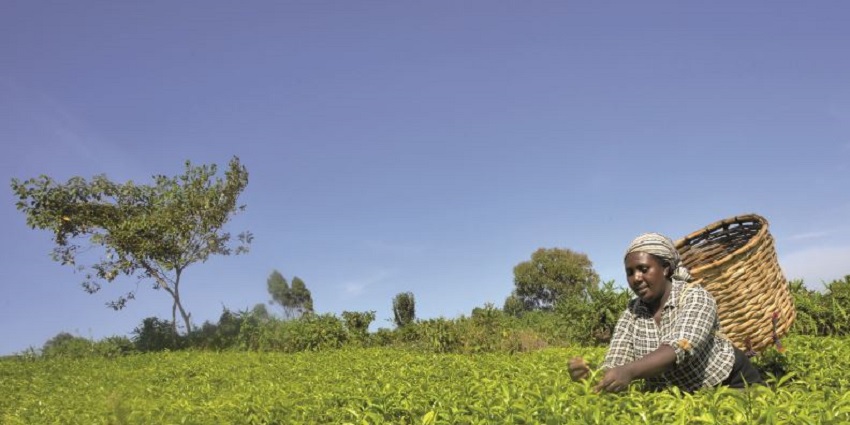[Interview] Climate change and microfinance

© Didier Gentilhomme
On the occasion of the African Microfinance Week (AMW) in Ouagadougou, the FinDev portal asked Eric Campos, General Delegate of the Grameen Crédit Agricole Foundation and CSR Director of Crédit Agricole SA, a few questions about the adaptation of microfinance institutions to climate change.
How can inclusive finance contribute to achieving the SDGs in Africa?
Inclusive finance is a voluntary approach by the financial sector that aims to create a positive social impact, while ensuring the creation of financial value to make this approach sustainable. Microfinance, when it is socially efficient, is an instrument of inclusive finance. But this can also be true for the traditional banking sector, which can seek to combine financial profitability of the resources implemented and social impact. Inclusive microfinance helps promote access to financing for populations traditionally excluded from the banking sector. As such, it supports the consumption level of low-income populations, often informal, and sometimes relatively more vulnerable (rural populations, women, young people looking for work) and allows them to build up some capital. When this financing supports the development of small businesses, they create growth, boost employment, and stimulate the local economy.
What is the role of MFIs in the face of climate change, particularly in Africa, a continent particularly vulnerable to these upheavals?
The Food and Agriculture Organization of the United Nations has highlighted the extreme urgency of supporting the adaptation of these small farms to climate change. Farmers, nomadic herders, fishermen, and small foresters all depend on activities that are closely and inextricably linked to the climate. The negative effects on food security are worsening, and can even become catastrophic in certain particularly vulnerable locations. Strengthening the resilience of small-scale family farming in the face of disrupted operating conditions is therefore urgent. The African continent is the most exposed to this, as of the 178 million insured farmers worldwide, only 0.25% are African.
In the face of climate change, access to financial services is essential because it helps support the stability of agricultural activities when MFIs manage to reach farmers in rural areas. However, it is clear that the challenges remain colossal. Heavy investments are needed to improve agricultural productivity, develop rural infrastructure, and enable the establishment of agricultural processing companies and agro-industrial activities. In rural areas, microfinance remains too isolated a tool and, due to the lack of an ecosystem to support the modernization of agriculture, is not yet up to the challenges facing the continent.
In particular, how can MFIs support rural populations and small producers?
While these farmers should ideally have adequate financial security and good livelihoods, they instead lead lives filled with daily struggles. They face limited access to agricultural inputs (seeds, fertilizers, water, agrochemicals, agricultural tools and machinery) and markets. They now regularly experience unexpected weather events affecting their production, and therefore their income, without insurance protection. Faced with the devastating effects of climate change, farmers are often helpless.
MFIs are often the only recourse for farmers to finance their operating needs. They offer a variety of financial products that seek to adapt to rural activities. When MFIs are socially engaged, they also offer "on-the-ground support" that enhances their effectiveness (workshops, field visits and risk assessments, advice on purchasing raw materials, etc.). The microfinance sector therefore remains the only alternative to loan sharks in many rural areas. These institutions can also offer agricultural insurance products, but the cost, unfortunately, remains beyond the reach of village-based agriculture, which is predominantly subsistence-based.
What concrete actions are being taken by the Grameen Crédit Agricole Foundation on this issue in Africa?
Rurality is the cornerstone of growth in developing countries. Rural areas have significant growth potential, but due to a lack of resources, they are losing their inhabitants, who migrate to areas with potential employment and settle in urban peripheries. This challenge of developing rural economies is also linked to the need to strengthen subsistence agriculture to address malnutrition in a context of exponential population growth, and to promoting the anchoring of populations around jobs in the agricultural sector.
The Foundation is a player in rural development. 40% of the funding granted is earmarked for sub-Saharan Africa, we are present in some fifteen countries, and the Foundation's funding policy primarily targets rural areas and women. Our principles of action are marked by the requirement to manage the social and economic performance of our partners. With strict eligibility criteria and a systematic analysis of economic and social performance, we promote responsible finance. But because the fight against poverty cannot be fought alone, we act alongside other committed stakeholders. With openness, commitment, and attentiveness, we call for the convergence of actions and agendas.
What are your expectations for SAM 2019?
The fight against climate change is a global issue in which we call upon everyone's responsibility. But the resilience of populations and economies is a local challenge that requires public and private actors capable, each within their own sphere of responsibility, of contributing to the modernization of territories. The SAM is a place for exchange, learning, information, and sharing. It is also a place where the coalition of goodwill is forged. Let us hope that this 2019 vintage brings us the optimism of will and the energy of inspiration.



Leave a Reply
Want to join the discussion?Feel free to contribute!